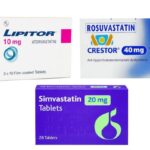How Long After Taking Olive Oil Can I Eat?

Olive oil is widely recognized as one of the world’s healthiest oils. In fact, people tend to live longer and healthier lives in regions where olive oil is a staple part of the diet.
High-quality olive oil is extracted from the olive fruit without the use of any heat or chemicals, as a result, it is a fantastic source of antioxidants and healthy fats because it has not been stripped of important nutrients and antioxidants.
In particular, it contains over 30 various types of phenolic compounds, which are powerful antioxidants that help protect the body against free radicals. Free radicals are molecules that cause cell damage and contribute to disease and the aging process.
The fat composition of extra virgin olive oil brands is also a major contributor to its healthfulness. It’s primarily made up of monounsaturated fat (approximately 73%), a heart-healthy fat that is a staple of the Mediterranean diet.
Studies consistently link a diet high in monounsaturated fat with favorable effects on markers of cardiovascular disease (heart disease and stroke). This includes a reduction in markers of chronic inflammation, blood pressure, cholesterol levels, and blood glucose levels.
Drinking olive oil may relieve constipation, which affects approximately 34% of adults over the age of 60. In a 4-week study, giving about 1 teaspoon (4 ml) of olive oil daily to 50 constipated hemodialysis patients resulted in significantly softened stools.
Furthermore, consuming olive oil was found to be as effective as mineral oil — a commonly used stool softener — at relieving constipation. Another study in 414 people over the age of 50 found that 97.7% of those with more than 3 bowel movements per week had high intakes of olive oil.
How much olive oil is safe to drink?
Trials investigating the effects of olive oil have been as low as 4 mL/day but typically used daily doses ranging from 25 to 40 mL and 8 to 70 g without reported adverse effects. It has been used topically to soften ear wax, incorporated into creams for topical application, and administered as an enema for constipation.
Olive oil is usually safe according to WebMD, when used as approximately 14 percent of the daily calorie intake, or about 2 tablespoons. The website notes that some people have used it far more safely — up to 1 liter per week or just over half a cup per day — for nearly six years.
You can also drink olive oil as a folk remedy for various health issues. Don’t use olive oil as a replacement for medical care. Instead, talk to your doctor about adding the beneficial oil to your diet. WebMD recommends the following dosages for several conditions:
• Constipation: Get back in the flow by taking up to 30 mL, or about 2 tablespoons, of olive oil to relieve constipation. Health experts recommend making a morning drink with 2 tablespoons of olive oil added to 4 cups of water and the juice of one lemon for constipation, cleansing the liver, and boosting the body’s immune system.
• Diabetes: Take about 4 teaspoons of olive oil daily to help prevent diabetes. Olive oil has an effect that can reduce blood sugar.
• High blood pressure: Take 6 to 8 teaspoons per day, to assist with high blood pressure.
• High cholesterol: WebMD recommends 2 tablespoons to replace saturated fats in the diet and add 17.5 grams of monounsaturated fatty acids.
How long after taking olive oil can I eat?
You should wait for at least 2 hours after taking olive oil before eating due to the generally low absorption of phenolic compounds after food intake. The biological activities ascribed to olive oil consumption are associated in part to its phenolics constituents and mainly linked to the direct or indirect antioxidant activity of olive oil phenolics and their metabolites, which are exerted more efficiently in the gastrointestinal (GI) tract, where dietary phenolics are more concentrated when compared to other organs.
Taking your food immediately after consuming olive oil can affect the amount of phenolics absorbed and the benefits you can derive from the oil. Absorption of mostly minor compounds of (extra virgin) olive oil takes place in the small intestine, as native or derivatives. Compared to diets rich in polyunsaturated fatty acids, olive oil suppresses gastric acid secretion and is a potent releasing factor of cholecystokinin peptide, which consistently indicate that the consumption of olive oil supplementation might also be beneficial in digestive diseases.





